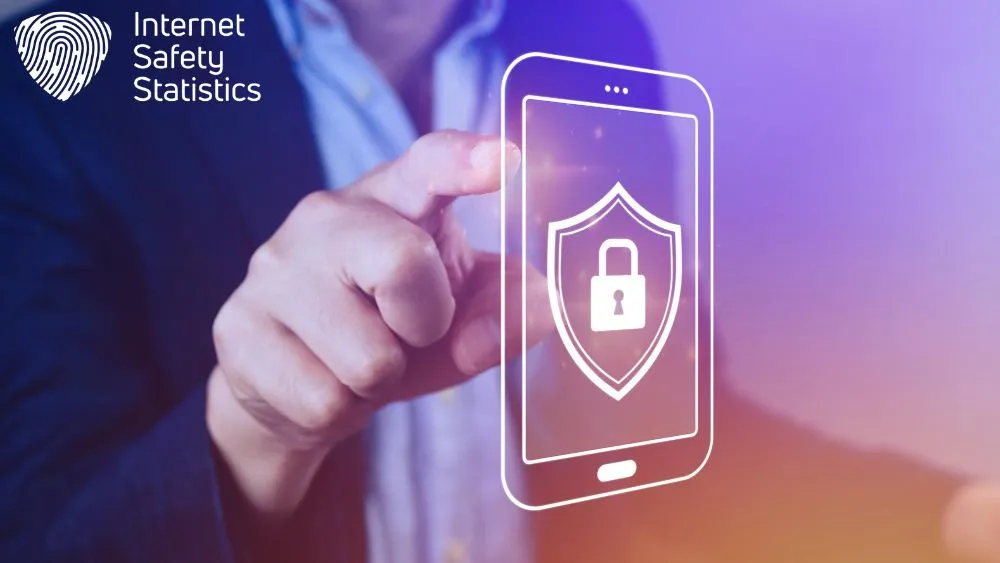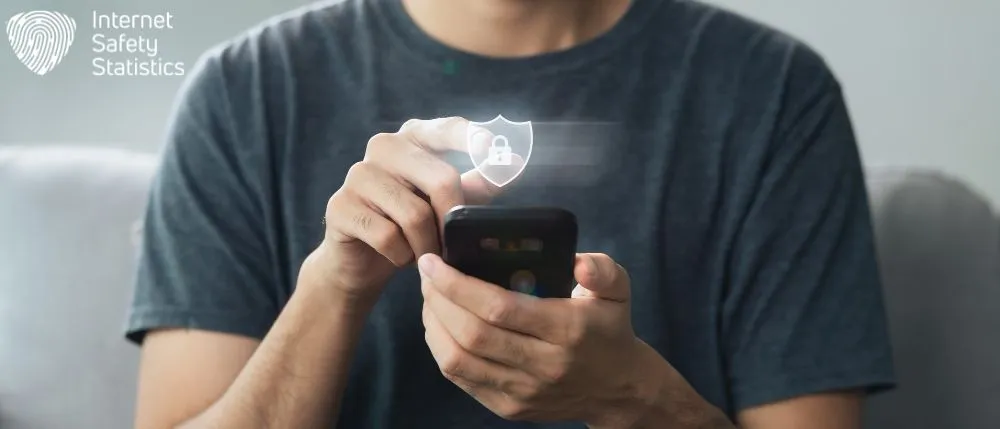
Our smartphones are more than mere communication devices; they serve as our confidantes, personal assistants, and gateways to the digital universe. But behind the sleek screens lies a complex legal landscape that governs our privacy.
How do phone companies collect and use our data? What rights do we have as consumers? Buckle up as we embark on a journey through the twists and turns of phone privacy laws, shedding light on regulations, unravelling myths, and empowering you to protect your digital footprint.
Legal Framework
Phone privacy laws vary across countries and regions, but they generally address critical aspects such as data collection, disclosure, and consumer rights. These legal frameworks aspire to find an equilibrium between the rapid progression of technology and the preservation of individual privacy.
Their overarching goal is to guarantee the security of our personal information in an era dominated by digital advancements. Let’s delve into the legal frameworks that delineate the landscape of phone privacy.
United States: Electronic Communications Privacy Act (ECPA)
The ECPA, enacted in 1986, is a federal law in the United States that sets the legal framework for the interception of electronic communications. It distinguishes between the interception of communications in transit (wiretapping) and access to stored electronic communications (such as emails or voicemails).
The law provides protections against unauthorised interception and access, but it has faced criticism for being outdated in the context of modern technology.
Fourth Amendment Protections
The Fourth Amendment to the U.S. Constitution protects citizens from unreasonable searches and seizures, and it plays a crucial role in shaping the legal landscape of phone privacy. Court decisions, such as Katz v. United States (1967), have influenced the interpretation of the Fourth Amendment concerning electronic communications.
State Privacy Laws
Many U.S. states have enacted additional privacy laws that complement federal regulations. For example, California has the California Consumer Privacy Act (CCPA), which grants consumers certain rights regarding their personal information.
International Laws
The General Data Protection Regulation (GDPR) in the European Union is a significant international framework that influences how phone privacy is handled globally. Other countries, such as Canada (Personal Information Protection and Electronic Documents Act – PIPEDA), have their own privacy laws governing electronic communications.
Role of Regulatory Bodies and Agencies

While we navigate the online world, often unaware of the unseen forces shaping our experience, dedicated teams work diligently behind the scenes. These are the regulatory bodies and agencies standing watch over our phone privacy like vigilant guardians. From setting crucial rules to investigating breaches and holding companies accountable, they play a vital role in ensuring our digital information doesn’t fall into the wrong hands.
Federal Communications Commission (FCC)—United States
The FCC plays a crucial role in regulating and overseeing various aspects of telecommunications, including aspects related to consumer privacy. The FCC may enforce rules related to data breaches, unauthorised disclosure of customer information, and the protection of consumer proprietary network information (CPNI).
Federal Trade Commission (FTC)—United States
The FTC has authority over unfair and deceptive practices in commerce, including privacy and data security issues. It investigates and takes action against companies that fail to uphold their privacy promises or engage in practices that harm consumers.
European Data Protection Authorities
In the EU, each member state has its own data protection authority, and there is a European Data Protection Board (EDPB) that provides consistency and guidance on the interpretation of GDPR. These authorities play a role in enforcing data protection laws and handling complaints from individuals.
International Cooperation
Cooperation between regulatory bodies from different countries is essential for addressing cross-border privacy issues. Mutual legal assistance treaties (MLATs) and other agreements facilitate collaboration between law enforcement agencies across borders.
Challenges and Evolving Roles
Regulatory bodies face challenges in keeping up with technological advancements and evolving privacy concerns. The role of these agencies is expanding as new technologies, such as artificial intelligence and biometrics, present novel privacy challenges.
Data Collection and Surveillance
Phone privacy laws play a pivotal role in regulating and addressing concerns surrounding data collection and surveillance, whether conducted by government entities or private organisations. These laws typically establish parameters to ensure that such practices adhere to ethical and legal standards.
Government Surveillance
Laws often require government entities to obtain warrants or follow specified legal procedures before engaging in surveillance activities. The balance between law enforcement’s need for information and individual privacy rights is a central theme, with provisions in place to prevent unjustified intrusion.
Private Sector Data Collection
Phone privacy laws also extend to private organisations, governing how they collect, store, and utilise personal information. Consent requirements are often stipulated, ensuring that individuals are informed about and agree to the collection and use of their data.
Balancing National Security and Individual Privacy
Understanding how phone privacy laws navigate the complexities of data collection and surveillance is essential in evaluating the delicate equilibrium between national security imperatives and the protection of individual privacy rights.
Legal Safeguards and Oversight
To address the tension between national security concerns and individual privacy, laws incorporate legal safeguards and oversight mechanisms. Courts and regulatory bodies may play a role in scrutinising government surveillance activities to ensure they are lawful and proportionate.
Surveillance Transparency
Some legal frameworks mandate transparency in surveillance activities, requiring government agencies to disclose the extent and nature of their data collection efforts. This transparency helps maintain accountability and allows the public to assess the trade-off between security and privacy.
Data Minimisation and Purpose Limitation
Laws may impose restrictions on the extent of data collected, emphasising the principles of data minimisation and purpose limitation. Government and private entities are often required to collect only the necessary information for a specific purpose, preventing overreach.
Judicial Review and Checks
Judicial review processes are integral components, enabling courts to assess the legality and necessity of surveillance measures. These checks ensure that surveillance efforts are justified and proportionate, striking a balance between security imperatives and individual rights.
Ongoing Legal Debates
The balance between national security and individual privacy is a dynamic area of legal discourse, with ongoing debates on the appropriateness of certain surveillance practices. Emerging technologies and evolving threats contribute to the need for continuous reassessment of this balance.
Warrant Requirements in Phone Privacy Laws
Phone privacy laws establish stringent criteria dictating when law enforcement agencies must procure a warrant before accessing phone records or conducting surveillance. Typically, these legal frameworks are designed to strike a delicate balance between investigative needs and individual privacy rights.
In most jurisdictions, a warrant is mandated when law enforcement seeks access to the content of phone communications, location data, or other sensitive information. The requirement for a warrant is rooted in the protection of Fourth Amendment rights, ensuring that searches and seizures are reasonable and supported by probable cause.
However, exceptions to the warrant requirement may exist in certain circumstances, such as cases of imminent danger or national security threats. Controversies arise when the scope and application of these exceptions are challenged, leading to debates over the extent to which individual privacy can be compromised in the interest of public safety.
Striking the right balance between law enforcement’s investigatory needs and safeguarding constitutional rights remains a critical aspect of ongoing discussions and legal interpretations within the realm of phone privacy laws.
Consent and Notification

Phone privacy laws play a crucial role in delineating the conditions under which consent must be obtained from individuals before their phone-related data can be collected or used. The concept of consent is foundational to respecting individual privacy rights in the digital landscape.
- Informed Consent Requirements: Phone privacy laws often mandate that individuals provide informed consent before their data is collected or processed. Informed consent implies that individuals are fully aware of the purposes for which their data will be used, and they agree to such usage.
- Explicit vs. Implied Consent: Some jurisdictions may require explicit consent, where individuals must actively indicate their agreement, while others may recognise implied consent based on actions that reasonably indicate a person’s willingness to share their data.
- Scope of Consent: Laws may specify the scope of consent, emphasising that it should be specific, granular, and cover all intended uses of the data. This ensures that individuals have clarity about the extent to which their information will be utilised.
- Revocability of Consent: Phone privacy laws often address the ability of individuals to revoke their consent at any time. This empowers individuals to maintain control over their data and decide whether they wish to continue sharing information with a particular entity.
Notification Requirements Regarding Data Collection Practices
Let’s talk about how phone privacy laws make sure that companies tell us what they’re doing with our information. These laws say that companies need to be clear and tell us in simple terms about what data they’re collecting and how they’re using it.
This helps us know what’s happening with our personal info so we can decide if we’re okay with it. It’s all about giving us the right information and making sure companies are fair and honest when they collect our data.
- Transparency in Data Collection: Phone privacy laws emphasise the importance of transparency in data collection practices. Entities collecting phone-related data are often required to provide clear and accessible information about what data is being collected, for what purposes, and how it will be used.
- Privacy Policies and Terms of Service: Entities are typically obligated to present their privacy policies or terms of service in a comprehensible manner, ensuring that individuals can easily understand the terms governing the collection and use of their phone-related data.
- Timely and Meaningful Notifications: Laws may stipulate that individuals should be notified in a timely and meaningful manner about any changes in data collection practices. This ensures that individuals are kept informed, allowing them to make informed decisions about their privacy.
- Exceptions and Emergency Situations: Some laws may provide exceptions to the notification requirements in cases of emergencies or legal obligations. However, these exceptions are often subject to strict criteria to prevent abuse and to balance privacy considerations.
In crafting effective phone privacy laws, finding the right balance between the need for data collection and the protection of individual privacy involves establishing clear requirements for obtaining consent and ensuring transparent communication about data collection practices. This approach aims to empower individuals to make informed choices about sharing their personal information in the digital realm.
Telecommunications Providers’ Responsibilities
Telecommunications companies bear significant responsibilities in safeguarding the privacy of their customers within the framework of phone privacy laws. Primarily, these companies are tasked with implementing robust security measures to prevent unauthorised access to customer data, ensuring that sensitive information, such as call records and personal details, remains confidential and protected.
The legal obligations of telecommunications companies often include adherence to data protection laws and privacy regulations, mandating transparent communication with customers about data collection and usage practices. However, a complex aspect of their responsibilities involves cooperation with law enforcement requests.
In certain situations, these companies may be legally obligated to provide customer data or assist in surveillance efforts initiated by law enforcement agencies. Striking a balance between protecting customer privacy and fulfilling legal obligations becomes a delicate challenge for telecommunications companies, requiring a nuanced approach to navigate the often-conflicting demands of ensuring public safety and preserving individual rights.
The extent and nature of cooperation are typically governed by specific legal frameworks, emphasising the importance of clear guidelines to prevent overreach and protect customer privacy within the bounds of the law.
As we navigate the intricate terrain of phone privacy laws, one thing remains clear: our digital lives are intertwined with legal protections. From consent requirements to transparent data practices, these laws aim to strike a delicate balance between technological advancements and individual rights.
